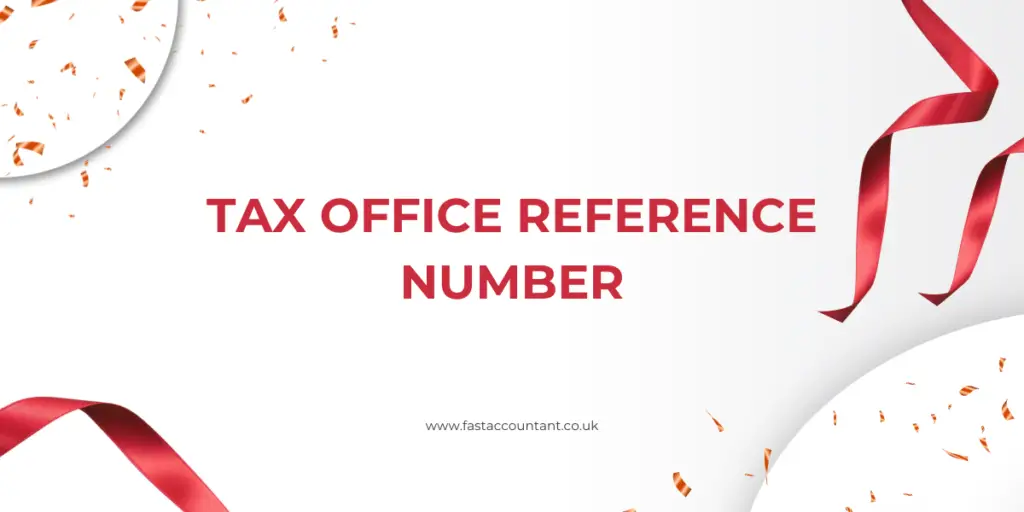
Have you ever wondered what a Tax Office Reference Number (TRN) is and why it’s essential for financial affairs in the UK? Navigating tax-related matters can be challenging, but understanding the crucial components, like the TRN, can make the process smoother. Let’s break down everything you need to know about the Tax Office Reference Number in the UK, from its significance to how you can find yours.
What Is a Tax Office Reference Number (TRN)?
The Tax Office Reference Number (TRN) is a unique identifier assigned by HM Revenue and Customs (HMRC) to employers and businesses for various tax-related activities. This number is crucial in ensuring accurate tax records and timely communications with the HMRC.
Where Can You Find Your TRN?
The TRN can be found on various documents sent by HMRC, including:
- PAYE reference letters: These are usually issued when you first register as an employer.
- PAYE payment booklets: They often include your TRN for ease of reference.
- P6 or P9 coding notices: These notices, which relate to employee tax codes, often have the TRN for your convenience.
Importance of the TRN in the Tax System
Your TRN plays a pivotal role in streamlining communications and ensuring all your tax records are accurately maintained by HMRC. Without it, identifying your business or employer status in the database would be virtually impossible.
Functions of the TRN
- Identification: It helps HMRC identify your business or employer status.
- Tracking: It tracks all financial and tax-related correspondence and payments between you and HMRC.
- Record Keeping: Ensures your tax payments and records are accurately logged.
Who Needs a TRN?
If you’re an employer or run a business, having a TRN is mandatory in the UK. It’s crucial for a variety of operations, from submitting PAYE returns to ensuring proper documentation for tax purposes.
New Businesses
New businesses need to register for a TRN as soon as they start employing staff. The process usually involves registering as an employer with HMRC, after which you’ll receive your TRN.
Sole Traders and Partnerships
Sole traders and partnerships without any employees typically do not need a TRN unless they choose to operate a PAYE scheme.
How to Get a TRN
Acquiring a TRN is integrated into the process of registering as an employer in the UK. Here’s a streamlined look at the steps involved.
| Steps to Obtain a TRN | Description |
|---|---|
| Register as an Employer | Visit the HMRC website and complete the registration form online. |
| Provide Necessary Details | Supply details such as business name, address, and contact information. |
| Receive Confirmation | HMRC will mail you a confirmation letter with your TRN. |
Registering Online
Registering online is a straightforward process, and you will usually receive your TRN within a couple of weeks. The online registration is user-friendly and prompts you to fill out the necessary details step-by-step.
Frequently Asked Questions (FAQs)
Let’s tackle some frequently asked questions to clarify any lingering doubts you might have.
Can You Have More Than One TRN?
In most scenarios, each employer or business entity is issued a single TRN. However, if you operate multiple businesses, you may have separate TRNs for each entity.
How Long Does It Take to Get a TRN?
Typically, it takes about two weeks from the date of your registration as an employer to receive your TRN. During peak times, it might take slightly longer.
Do Existing Businesses Need to Reapply for a TRN Annually?
No, once issued, your TRN remains the same for the life of the business unless significant changes occur, such as restructuring into a completely new entity.
Conclusion
Understanding your Tax Office Reference Number (TRN) in the UK and its significance is essential for managing your business finances efficiently. From registering as an employer to resolving common issues, knowing the ins and outs of your TRN will aid you in navigating the complexities of the UK tax system with confidence.
Feel free to reach out to HMRC or consult a tax professional if you encounter any issues or have specific questions concerning your TRN. Proper management and understanding can ensure your business remains compliant with HMRC requirements, paving the way for smoother operations.

